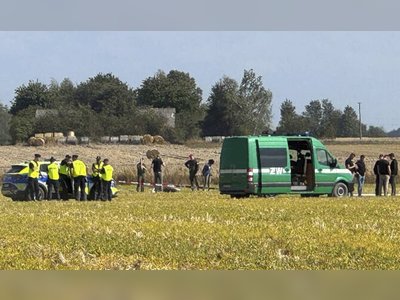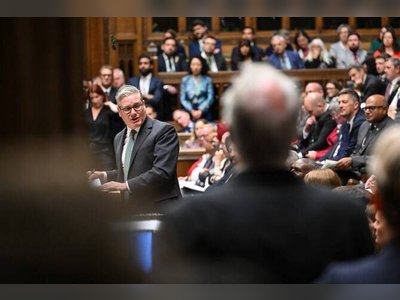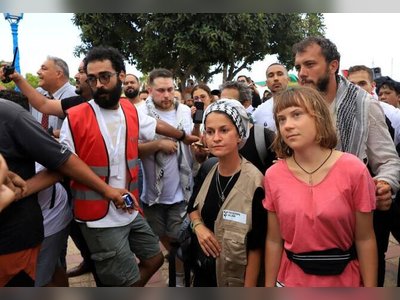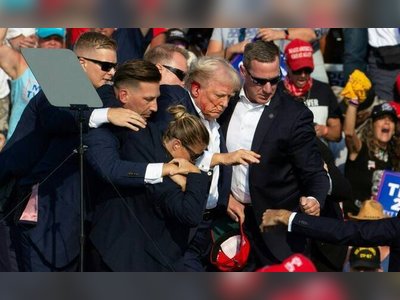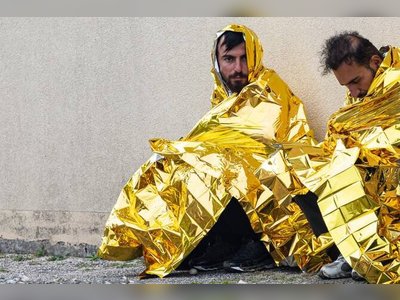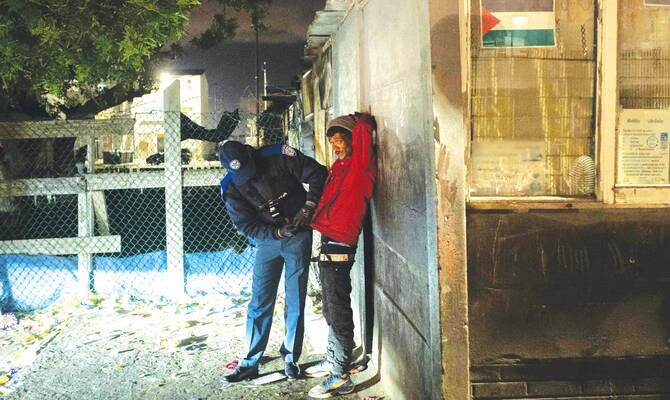
Cape Town Grapples with Rising Gang Violence as Community Demands Action
Fears intensify in Cape Town as gang-related violence escalates, prompting protests and calls for increased security measures.
In Cape Town, a surge in gang-related killings has ignited widespread fear and outrage among residents, leading to community protests and demands for enhanced protection.
Municipal officials acknowledge the severity of the situation, with authorities recording 59 murders within a span of seven days last month alone.
This spike represents a significant increase in an already concerning murder rate that averages about 300 incidents every three months.
The recent wave of violence has left communities on edge, as evidenced by protests led by anti-gang groups like the Cape Flats Safety Forum.
During these demonstrations, residents express their frustration and fear, emphasizing how deeply ingrained gun violence has become in their daily lives.
They urge for a swift response from city officials to address this escalating issue.
Safety concerns are further exacerbated by the limited resources available to law enforcement.
Municipal safety officials highlight the challenges faced by the police in effectively combating gang activity due to deficiencies in intelligence gathering and a significant case load that prevents them from adequately investigating crimes and driving prosecutions.
These obstacles contribute to the low rate of convictions for gang-related murders, with only 2 to 3 percent resulting in successful outcomes.
The situation is further complicated by the increasing sophistication of gangs, which have been able to recruit more corrupt law enforcement officials and judges to their ranks, thereby expanding their influence and capabilities.
The affected areas in Cape Town, particularly those on the outskirts like Lavender Hill, bear the brunt of this violence, with districts experiencing a rise in deadly clashes within the minibus taxi industry as well.
Despite these challenges, community leaders such as Mark Nicholson are working towards alternative solutions by organizing youth projects aimed at diverting young people from gang activity.
However, there is also growing support for more radical measures, including calls to deploy the military in order to assert control over the lawlessness that has gripped these communities.
The debate on how best to combat gang violence continues, with community members and officials alike grappling with complex societal issues stemming from apartheid policies and the systemic deficiencies within the law enforcement sector.
The immediate need for a comprehensive response is clear, as Cape Town faces the daunting task of not only addressing the current spike in violence but also implementing long-term strategies to ensure peace and stability across its neighborhoods.
Municipal officials acknowledge the severity of the situation, with authorities recording 59 murders within a span of seven days last month alone.
This spike represents a significant increase in an already concerning murder rate that averages about 300 incidents every three months.
The recent wave of violence has left communities on edge, as evidenced by protests led by anti-gang groups like the Cape Flats Safety Forum.
During these demonstrations, residents express their frustration and fear, emphasizing how deeply ingrained gun violence has become in their daily lives.
They urge for a swift response from city officials to address this escalating issue.
Safety concerns are further exacerbated by the limited resources available to law enforcement.
Municipal safety officials highlight the challenges faced by the police in effectively combating gang activity due to deficiencies in intelligence gathering and a significant case load that prevents them from adequately investigating crimes and driving prosecutions.
These obstacles contribute to the low rate of convictions for gang-related murders, with only 2 to 3 percent resulting in successful outcomes.
The situation is further complicated by the increasing sophistication of gangs, which have been able to recruit more corrupt law enforcement officials and judges to their ranks, thereby expanding their influence and capabilities.
The affected areas in Cape Town, particularly those on the outskirts like Lavender Hill, bear the brunt of this violence, with districts experiencing a rise in deadly clashes within the minibus taxi industry as well.
Despite these challenges, community leaders such as Mark Nicholson are working towards alternative solutions by organizing youth projects aimed at diverting young people from gang activity.
However, there is also growing support for more radical measures, including calls to deploy the military in order to assert control over the lawlessness that has gripped these communities.
The debate on how best to combat gang violence continues, with community members and officials alike grappling with complex societal issues stemming from apartheid policies and the systemic deficiencies within the law enforcement sector.
The immediate need for a comprehensive response is clear, as Cape Town faces the daunting task of not only addressing the current spike in violence but also implementing long-term strategies to ensure peace and stability across its neighborhoods.


